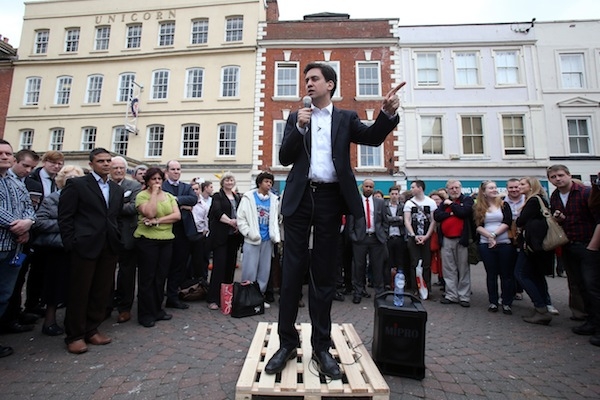For months, right-wing politicians and commentators have been licking their lips waiting for the Labour party to face up to reality. We all assumed that the sort of speeches delivered by Ed Balls and Ed Miliband this week, in which the two men abandoned the party’s commitment to universalism and promised to cap welfare spending, would send Labour into orbit. There was even a revolt in the Commons which appeared to be a harbinger of doom about Labour and welfare.
So where’s the open warfare? Sure, Peter Hain spent most of Monday having a grump into various cameras and microphones about the winter fuel payment. But the party has stayed remarkably peaceful.
The answer is the amount of groundwork that Ed Miliband and his team did for this speech. Over the past three or four weeks the Labour leader, his speechwriter Marc Stears and his PPS Karen Buck have held meetings with many Labour backbenchers, particularly those with an interest in welfare, to explain what the speech would contain. Miliband’s wider team also contacted MPs to chat through the plans.
Those involved in the talks tell me that they didn’t just read out what they wanted to do and then leave stunned MPs to cry in alone in a room about the death of universalism or plans to cap welfare spending. They asked for feedback. ‘This speech was changed in real time,’ one source tells me. ‘We were constantly changing things – not the big ideas, but some of the language and concepts changed as we talked to MPs.’
The other reason for the peace in the party is that Miliband has worked very hard to build up message discipline in his party since coming into power. This work has been paying off for some time in the Commons: even when Miliband himself fails to win the exchanges with David Cameron at Prime Minister’s Questions, his backbenchers will happily hammer away with the lines to take in their own questions, normally on food banks, the bedroom tax and the 50p tax cut. And because he is a warm, personable leader, he has thus far managed to give his backbenchers the feeling that he invests in them, and thus they should keep investing in him by supporting these big reality check weeks. One frontbencher remarked to me that ‘David [Miliband] couldn’t have kept the party with him for this long: this week is a testimony to how good Ed is at these things’.
Of course, there are many, bigger, reality checks to come, but this first one, which the leadership knew was going to be difficult, will give it confidence that open warfare isn’t inevitable.







Comments